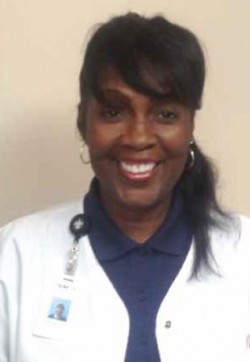A local oncology case manager combines a practical approach with genuine concern to help ease difficult end-of-life decisions.
 Richetta Black, RN, is a case manager in the oncology unit at Slidell Memorial Hospital. Growing up in New Orleans, Black “always wanted to serve and help people,” she says. She began her medical career as an orthopedic nurse at Charity Hospital, eventually gravitating toward oncology.
Richetta Black, RN, is a case manager in the oncology unit at Slidell Memorial Hospital. Growing up in New Orleans, Black “always wanted to serve and help people,” she says. She began her medical career as an orthopedic nurse at Charity Hospital, eventually gravitating toward oncology.
As a case manager, Black’s role is to discuss end-of-life processes and decisions with patients and their families. She strives to give patients control over where and how their lives will draw to a close.
“Once doctors broach the conversation about end-of-life care, you can only imagine that [it raises] a host of questions for patients and families,” Black says. “What’s rewarding is that once that conversation has been had, the patient can be involved in making the end-of-life decisions. [Not] everyone gets the opportunity to have a say in how their life will end.”
Along with hospice representatives, Black focuses on easing the anxiety of patients and families. She addresses issues that can be difficult for families to bring up with their loved ones, such as wishes for funeral services, burial locations and legal considerations.
In working with end-of-life patients, ranging in age from as young as 25 years old on up, Black sometimes needs a moment to compose herself. “There are times when I’ve gone to my office and had to cry—walk out of the hospital, and walk around the block and cry,” she says. “It goes without saying that it is an emotional time. At the same time, I think what’s rewarding to me is that my emotions lie with the patients and the families.”
Having worked with many end-of-life patients over the course of her career, Black describes herself as “more comfortable” with the idea of dying than she used to be, but says each case poses unique emotional challenges. “It doesn’t matter how many times I’m involved; each case is a new case,” she says.
Black’s greatest asset is her genuine concern. “Patients and their families don’t care how much you know, how many degrees you have,” she adds. “They just want to know that you care about them.”
